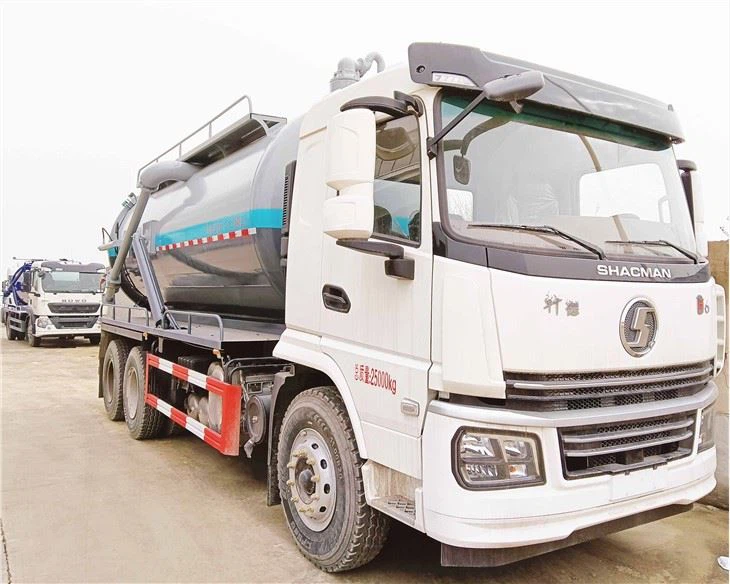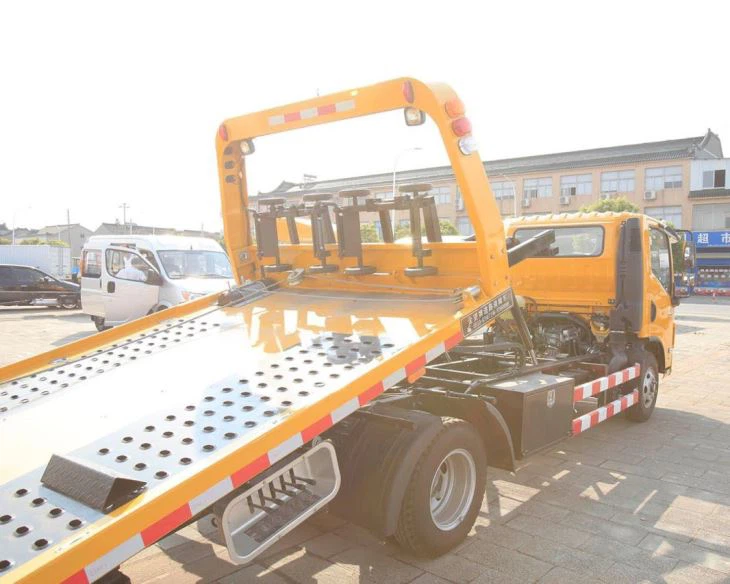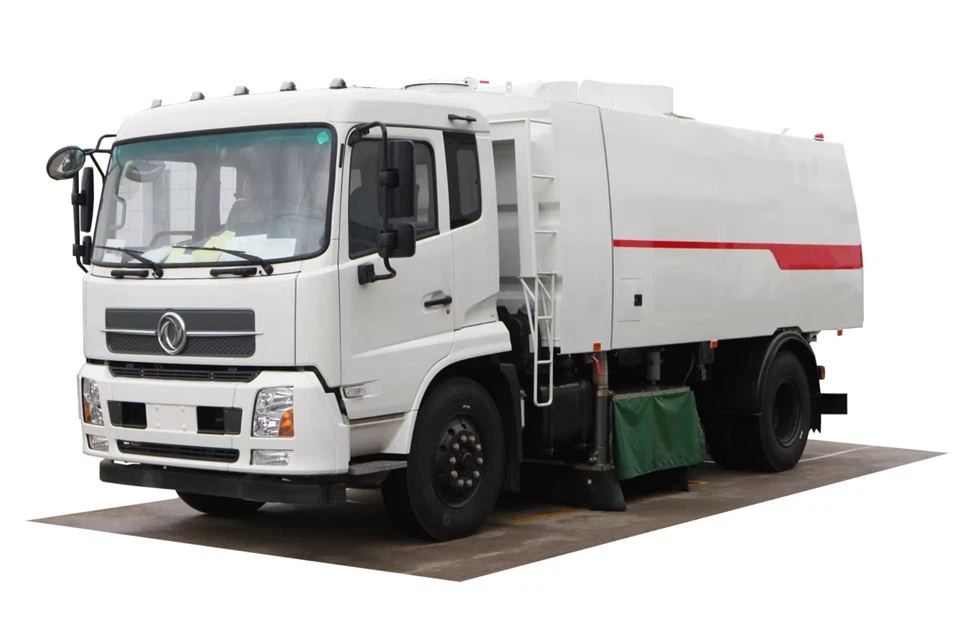Ultimate Guide to Roll Off Truck Sales: What You Need to Know

Roll off trucks are essential vehicles in the waste management and construction sectors. Their unique design allows for efficient loading, unloading, and transportation of heavy materials. This comprehensive guide will explore everything you need to know about roll off truck sales, including their features, types, pricing, buyers’ tips, and much more.
Understanding Roll Off Trucks
What is a Roll Off Truck?
A roll off truck is a specialized vehicle designed to transport roll-off containers. These containers are typically used for heavy materials, such as construction debris, scrap metal, and other waste. The truck features a hydraulic system that allows it to lift and lower the container for easy loading and unloading.
How Roll Off Trucks Work
Roll off trucks operate using a hydraulic system. The system lifts the back of the truck to tilt the container, allowing the contents to slide out. When picking up, the truck is backed up to the container, the hydraulic system lifts the container onto the truck bed, and it is then secured for transport.
Types of Roll Off Trucks
Standard Roll Off Trucks
Standard roll off trucks are equipped with a chassis designed to accommodate different container sizes. They are versatile and widely used for both residential and commercial applications.
Heavy-Duty Roll Off Trucks
These trucks are built to handle larger loads and more demanding tasks. They usually come with powerful engines and reinforced frames to ensure durability and strength.
Custom Roll Off Trucks
For specific industry needs, custom roll off trucks can be tailored to accommodate particular requirements. These modifications may include specialized hydraulic systems, enhanced capacity containers, or specific safety features.
Key Features of Roll Off Trucks
Hydraulic System
The hydraulic system is the heart of any roll off truck. It controls the lifting and lowering of the containers, ensuring smooth operations even under heavy loads.
Container Compatibility
Different roll off trucks can handle various container sizes, typically ranging from 10 to 40 yards. Make sure to choose a truck that is compatible with the containers you intend to use.
Payload Capacity
Knowing the payload capacity is crucial for buyers. Most roll off trucks can carry between 10,000 and 30,000 pounds, depending on the model and specifications.
The Market for Roll Off Trucks
New vs. Used Roll Off Trucks
When considering roll off trucks, buyers face the decision of purchasing new or used models. Each option has its advantages and disadvantages:
| New Roll Off Trucks | Used Roll Off Trucks |
|---|---|
| Higher cost, but comes with warranties. | More affordable, but may require repairs. |
| Latest technology and features. | Limited features may be outdated. |
| Customizable options available. | Harder to find specific customization options. |
Where to Buy Roll Off Trucks

Roll off trucks can be purchased from various outlets, including dealerships, online platforms, and auctions. Prioritize professional dealers for warranty and service support.
Factors Influencing Roll Off Truck Prices
Condition of the Truck
The condition of the truck significantly impacts its price. New trucks are generally more expensive than used ones, but their longevity and reliability often justify the investment.
Brand Reputation
Reputable brands like Freightliner, Mack, and Kenworth often command higher prices due to their reliability, performance, and customer service.

Specifications and Features
Trucks with enhanced specifications, such as higher payload capacities, upgraded hydraulic systems, and advanced safety features, usually cost more than their basic counterparts.
Best Practices for Purchasing Roll Off Trucks
Conduct Thorough Research
Before making a purchase, research various models, specifications, and prices. Websites like TruckPaper and eBay Motors can provide valuable insights into market trends.
Inspect the Vehicle
Always inspect a used roll off truck thoroughly. Check the hydraulic system, the condition of the chassis, and any signs of wear and tear in the engine and transmission.
Request Vehicle History Reports
For used vehicles, obtaining a vehicle history report can provide insights into previous ownership, accident history, and maintenance records, ensuring a wise investment.
Financing Options for Roll Off Trucks
Bank Loans
Traditional bank loans are a common method for financing heavy vehicles. They offer competitive interest rates, especially for businesses with good credit ratings.
Leasing Options
Leasing can be an alternative for businesses that don’t want to commit to purchasing a truck. Leases can provide flexibility and lower upfront costs.
Manufacturer Financing
Many manufacturers offer financing options as part of the purchase. These typically include attractive terms and rates specifically designed for buyers of their vehicles.
Tips for Maintaining Roll Off Trucks
Regular Inspection and Servicing
Ensure regular inspections of all mechanical components, particularly the hydraulic systems. Scheduled servicing will help extend the truck’s lifespan.
Proper Loading Techniques
Follow proper loading techniques to avoid damaging the truck and its components. Ensure loads are balanced and within the truck’s payload capacity.
Keep Records
Maintain meticulous records of maintenance and service to aid in future troubleshooting and reselling value.
FAQs About Roll Off Truck Sales
1. What is the average cost of a roll off truck?
The price of a roll off truck can vary widely, with new models typically ranging from $150,000 to $250,000 and used models from $30,000 to $100,000 depending on age and condition.
2. How long do roll off trucks typically last?
With proper maintenance, a roll off truck can last anywhere from 10 to 15 years or longer, depending on usage and care.
3. What are the common issues with used roll off trucks?
Common issues can include hydraulic leaks, engine problems, and wear on the braking system. Always investigate these areas when purchasing a used truck.
4. Can I modify my roll off truck?

Yes, roll off trucks can be equipped with custom features such as enhanced hydraulic systems or additional storage solutions. Consult with professionals to discuss your needs.
5. How can I increase the resale value of my roll off truck?
Regular maintenance, keeping records, and minimizing engine wear can help increase the resale value. A clean and well-maintained truck will attract potential buyers.
6. Are there any specific licensing requirements for operating a roll off truck?
Licensing requirements for operating a roll off truck vary by state and country. Typically, a commercial driver’s license (CDL) is required for these heavy vehicles.
